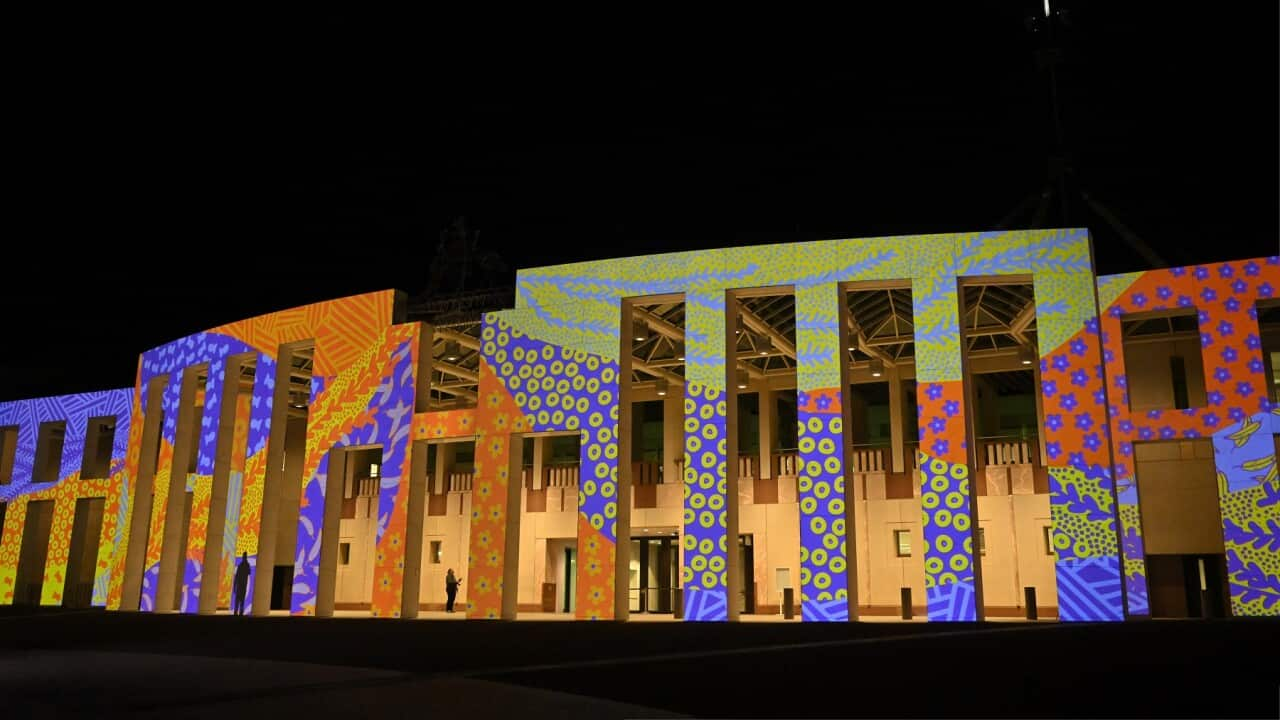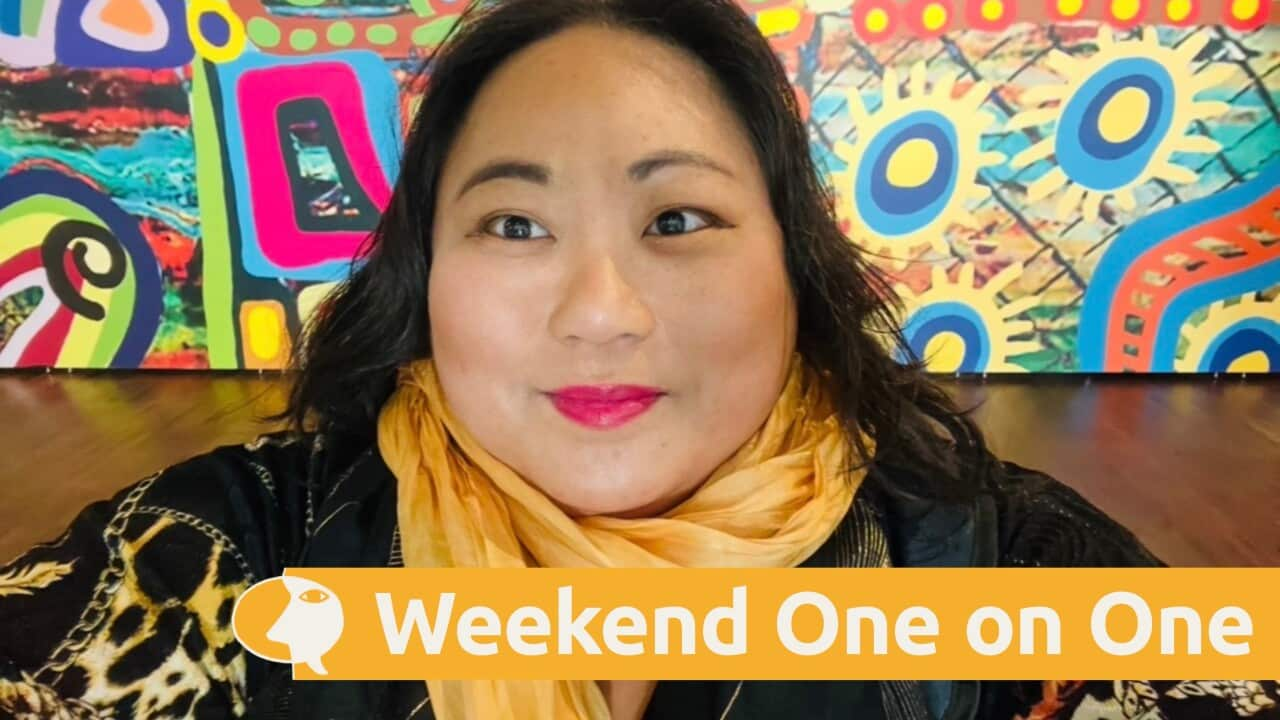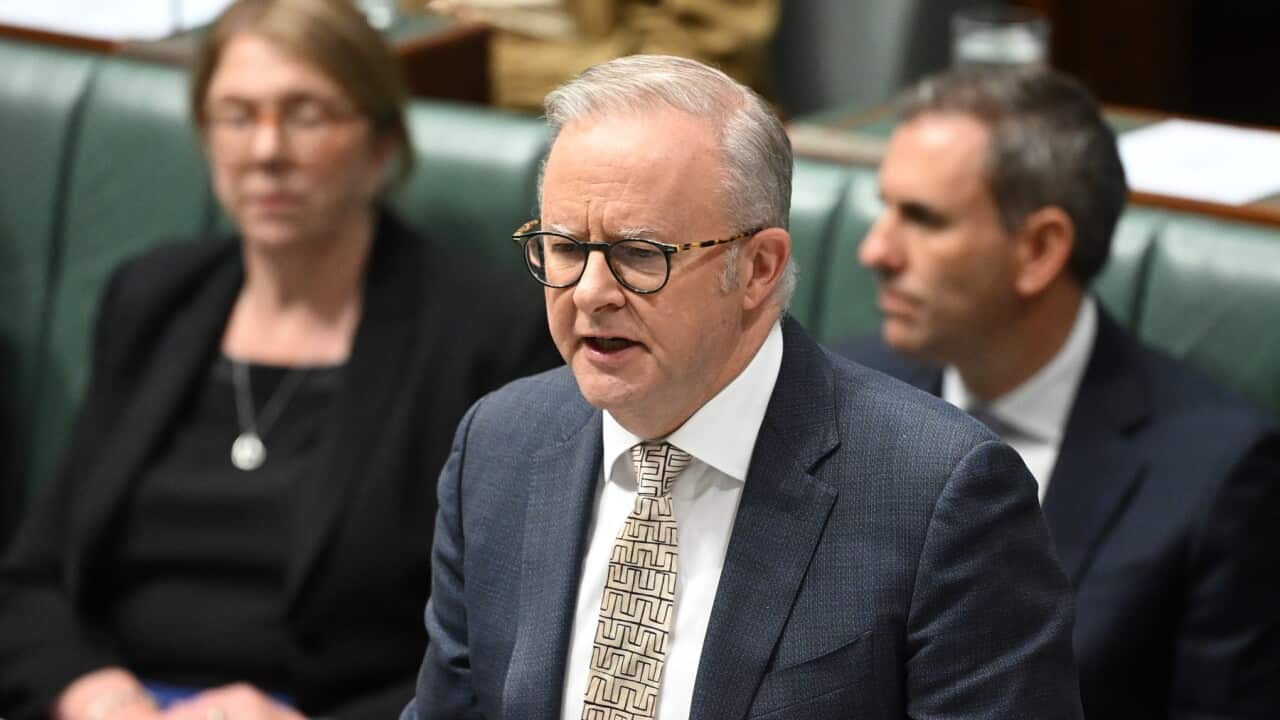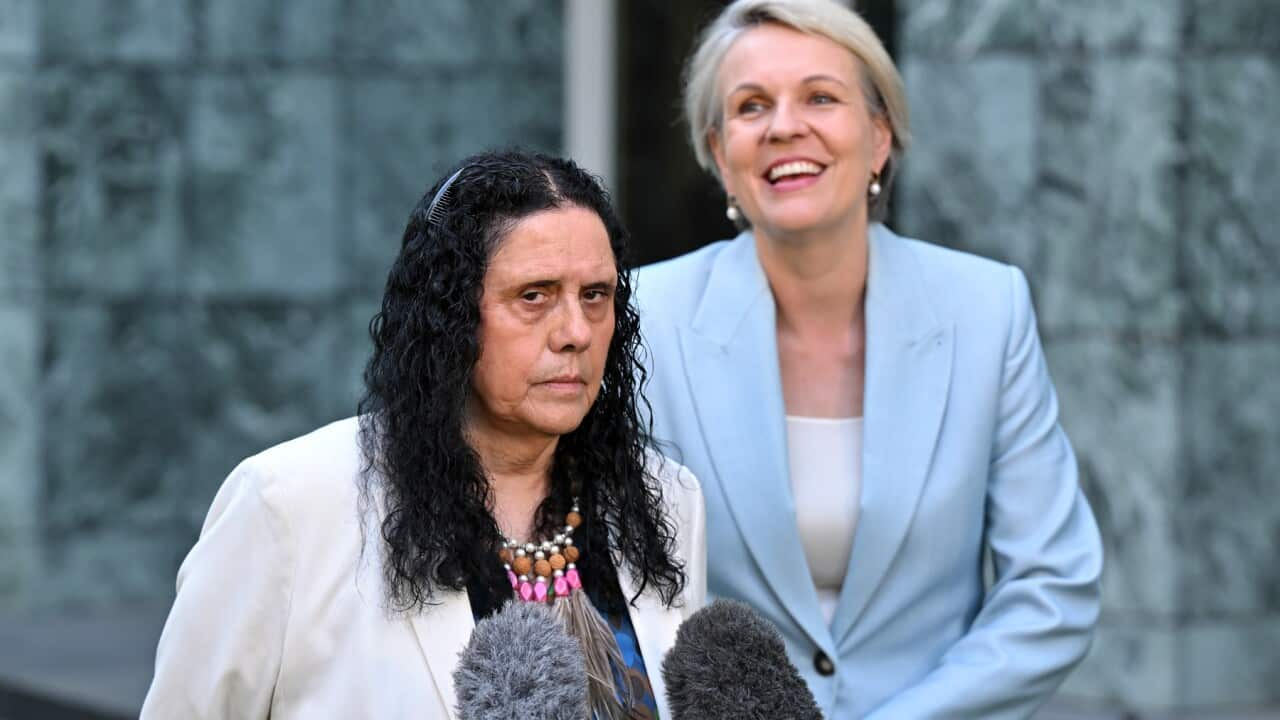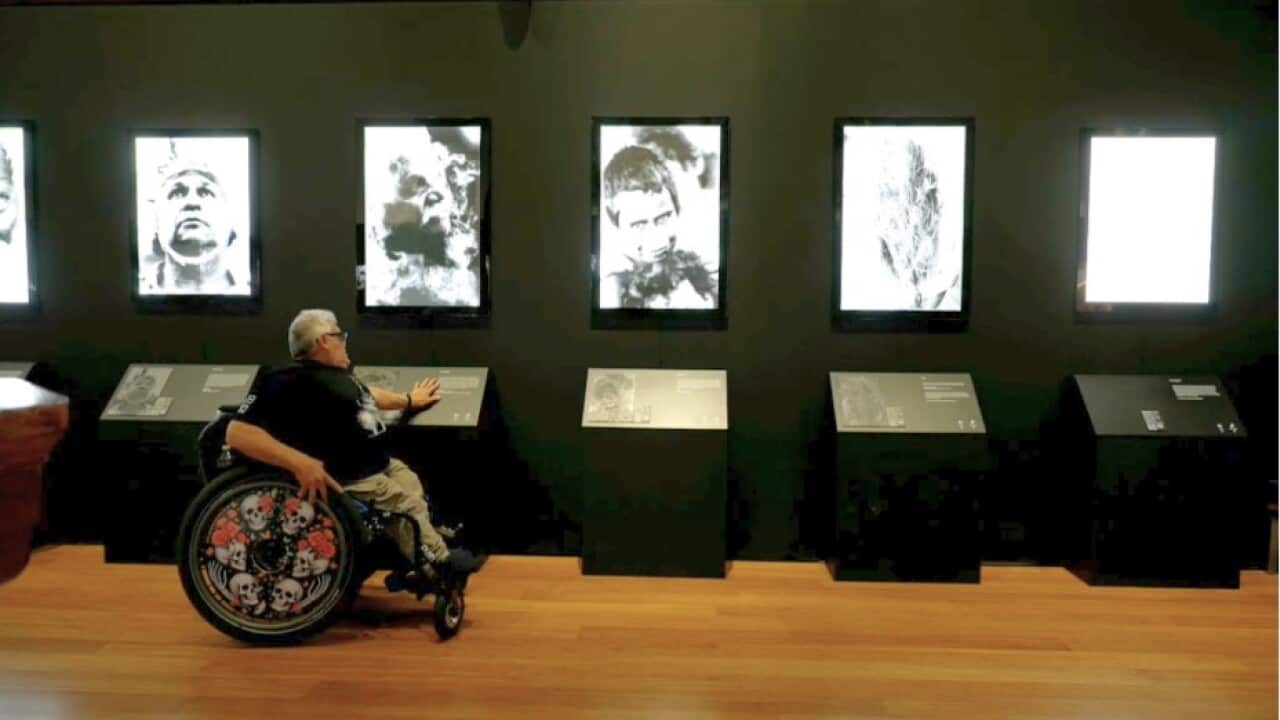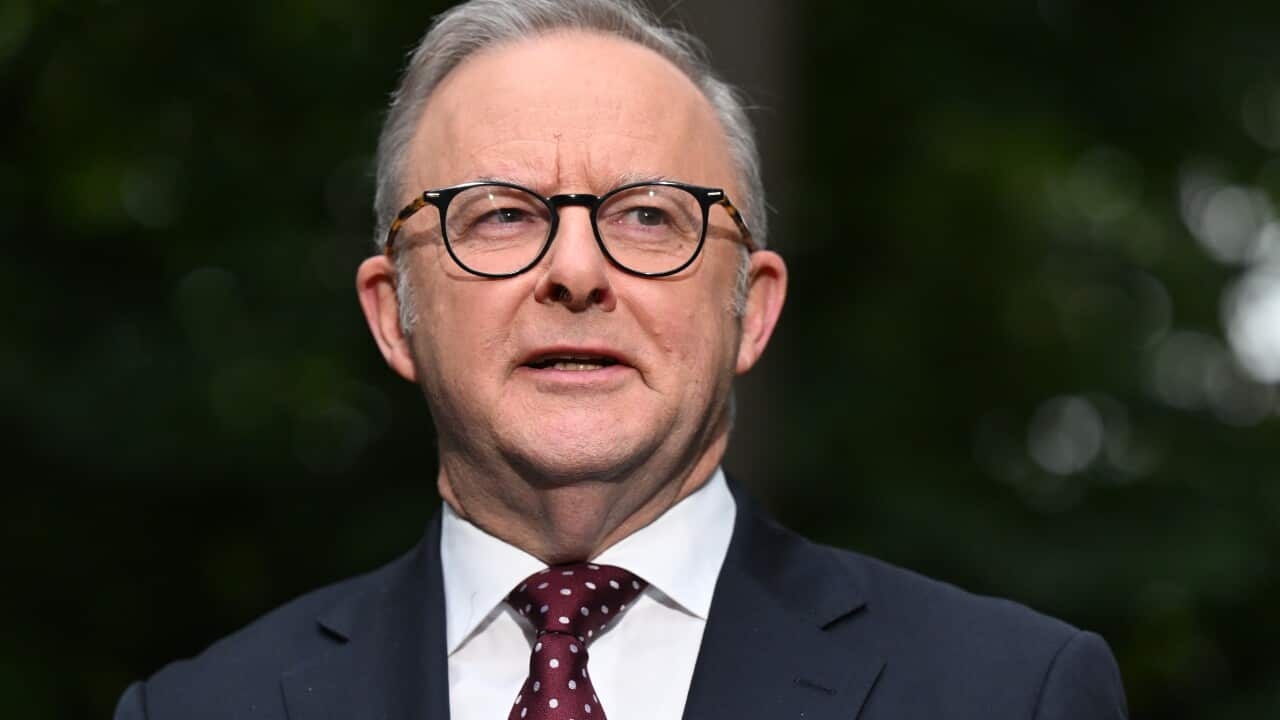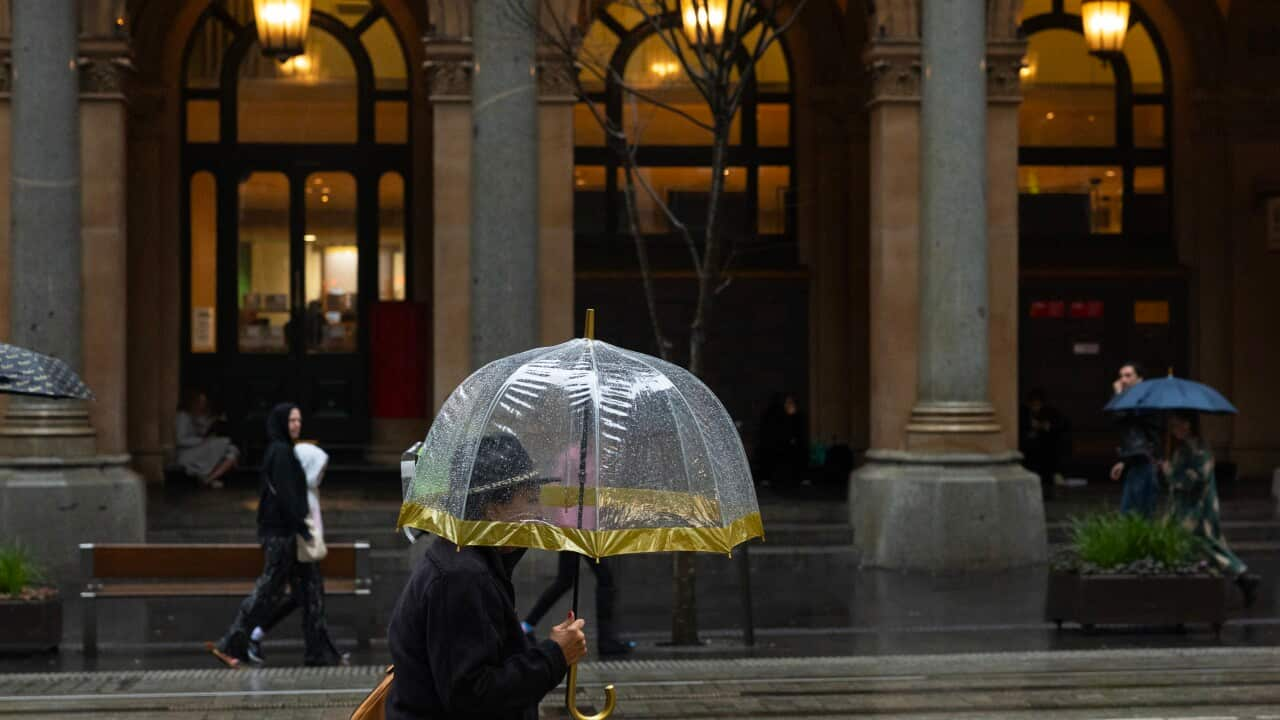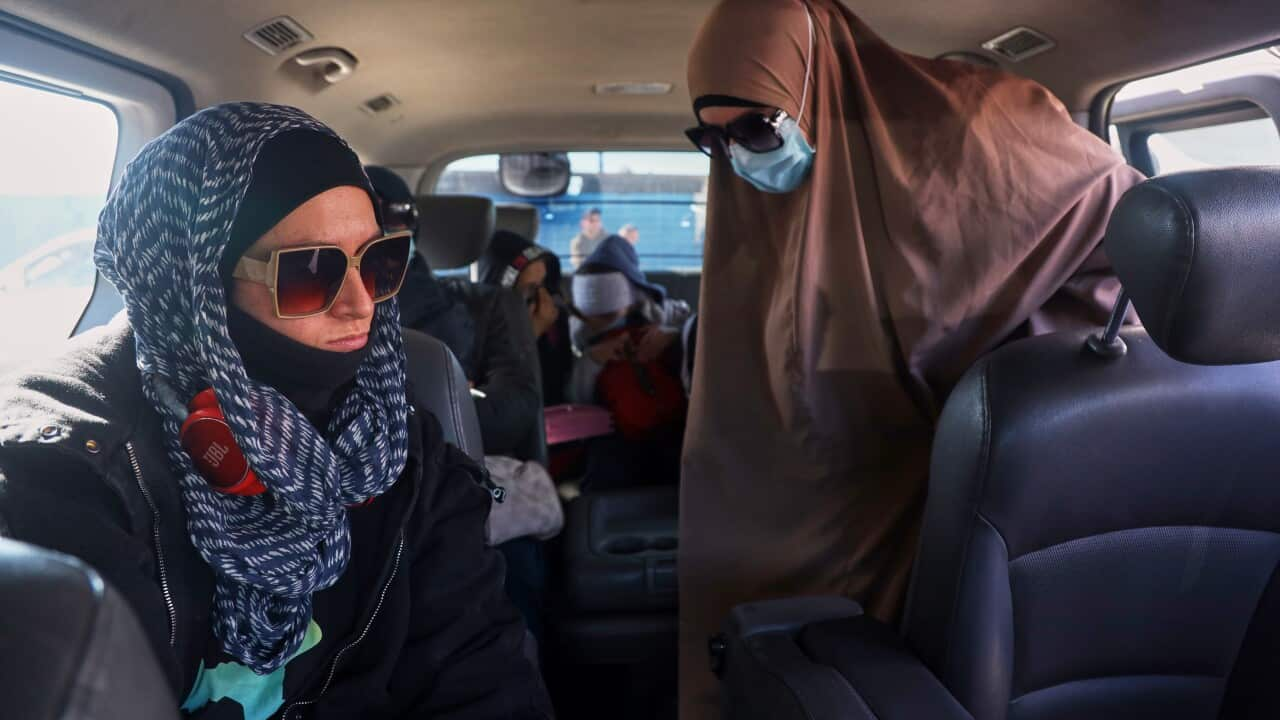Listen to Australian and world news, and follow trending topics with SBS News Podcasts.
TRANSCRIPT
A celebration of strength and resilience, aimed to foster understanding and respect for Aboriginal and Torres Strait Islander people.
Every year, from 27 May to 3 June, Australians are presented with the opportunity to learn more about the nation’s shared histories, cultures and achievements.
These dates commemorate two significant milestones in the reconciliation journey and the nation's history.
John Paul Janke is NITV's National Indigenous Affairs Editor and host of NITV's flagship program, The Point.
"One of course is the successful 1967 referendum, which for the first time included voted to include Aboriginal people within our senses. And the second one is the High Courts Mabo decision on June the third, which ended the legal fiction of Terra Nullius that when the British arrived here, that this land belonged to no one. So there two key dates that mark Reconciliation Week, and I encourage as many people as I know and everyone who's listening to learn more about those two dates."
National Reconciliation Week started as the Week of Prayer for Reconciliation in 1993 - which also happens to be the International Year of the World’s Indigenous Peoples.
This was supported by Australia’s major faith communities.
In 1996, the Council for Aboriginal Reconciliation launched Australia’s first National Reconciliation Week.
In 2001, Reconciliation Australia was established to continue to provide national leadership on reconciliation.
In the same year, approximately 300,000 people walked across Sydney Harbour Bridge as part of National Reconciliation Week - and subsequently across bridges in cities and towns - to show their support for reconciliation.
Today, National Reconciliation Week is celebrated in workplaces, schools and early learning services, community organisations and groups, and by individuals Australia-wide.
Professor Jackie Huggins is a prominent historian, academic and Bidjara and Birri Gubba woman with the University of Queensland.
Her mother Auntie Rita Huggins was a key campaigner in the 1967 referendum, of which the Aboriginal and Torres Strait Islander people received an overwhelming vote of over 90 per cent from the Australian public in favor of being included in the census.
"National Reconciliation Week is always a week to really feel excited about, but at the same time we know that there's a long way to go. While we see all these very positive things happening in our communities, there's still a lot of negatives that we have to fight against and we have to be vigilant of to get justice for our people."
Professor Huggins says the dial hasn't moved in terms of closing the gap, and is taking a very, very long time.
"It will take hundreds of years to reach any kind of parity with non-Indigenous Australians across all those levels. There's been here in Queensland, the tried treaty and truth telling programs that we've had and they've been dismissed by governments."
But she says First Nations people are still making sure that they continue their long overdue and hard fought justice programs.
"There hasn't been a let up in children going into care, foster homes or other care. It also, particularly around criminal justice system and with our young folk in jail. So there's a continuum of what needs to be done - housing, education, employment, the usual things that plague Aboriginal and Torres Strait Islander people's lifestyle."
She says the theme this year Bridging Now to Next is very significant because it's the 25th anniversary of the bridge walk around Australia.
"Here in Brisbane it was about 80,000 people that walked and people who've walked in localised their localised areas for reconciliation. So that's been massive support for us. Right now we have a lot of young people who still have fire in their belly."
Professor Huggins says they want to see big changes come within their own lifetime as well.
"For those of us have been in a struggle for a long time over decades. For me it's 45 years. We do want to hand over the baton and make sure young people step up to become the next because we have long endured massive changes. But also with that we've had some good political gain, but not nearly enough to close any gap in our country."
This year, the Australian National Maritime Museum will mark Reconciliation Week 2025 with an installation of the 12 turtle shells hand-painted by Torres Strait artist Gail Mabo around the deck of the Endeavour.
On June 11th, 1770, Lieutenant James Cook's ship, the Endeavour, ran aground on a coral reef in Far North Queensland.
It happened in a part of the Sea Country that the Guugu Yimithirr people have ancestral kinship responsibility to oversee. The reef is also a part of the traditional Sea Country of several Eastern Yalanji Aboriginal clans ((including the Wyamburr, Yuki Baja-Muliku, Kuku Bididji, Kuku Yalanji, and Kuku Nyungkul)).
Matt Poll is the Manager of Indigenous Programs at the museum.
"They ended up spending about six weeks there, and there was all these different sorts of interactions that happened. But one of the most significant that Cook and Banks and the other people in the Endeavour talk about is when some people from the Guugu Yimithirr people came onto the boat one day and when they looked around the boat, they were horrified because they saw that there was all these turtles, full size turtles, which had been taken at the wrong time of the year and taken from a sacred breeding ground for turtles."
He says the Indigenous group saw this as a huge transgression.
"It's literally like walking into a supermarket, not paying for anything. So they were confronted by the local community for breaking the law and that was the catalyst for this, a series of events which happened when they went ashore next time Cook and his men, the Guugu Yimithirr people, they burnt some ground and Cook fired at one of the local people as well in that incident."
As someone who prioritises contemporary First Nations voices across collections and exhibitions, Mr Poll is really proud to be able to have an installation from Gail Mabo - the daughter of land rights activist Eddie Mabo.
He says they have virtual excursions available for school students who can't make it in person.
"On Monday, we have our virtual excursions for school students. Any school student around the state can dial in. You can find about this on our webpage. And we're doing a big presentation. Usually we get several hundred students and this virtual excursion will be about the history of Reconciliation week in Australia and practical stories of reconciliation around the country."
They will also have a rooftop projection as part of the Vivid Festival.
John Paul Janke says the history of National Reconciliation Week goes back to the early 1990s.
"Around 1991, there was a Royal Commission into Aboriginal deaths in custody. And one of the recommendations was that from that was that there needs to be a sort of reconciliation to address Indigenous advantage in Australia. So from that recommendation came a 10 year process working towards reconciliation, working towards repairing the relationship between Indigenous and non-Indigenous people of this country, move now ahead to 2025, and that idea of reconciliation and really finishing the unfinished business."
He says they hoped that they would achieve reconciliation by 2001, which was the centenary of Federation here in Australia.
"It's taken a bit longer, but that theme is still current, that they're looking for a united Australia that respects this land for everyone, but also values Aboriginal and Torres Strait heritage and history and people as part of the Australian nation."
He says this year's theme really builds on a keystone anniversary for the reconciliation movement.
"It's 25 years since the famous Sydney Harbour Bridge Walk for Reconciliation. 2000 was a pinnacle year for that 10 year process from 1991 to really build a people's momentum towards reconciliation. And that colonised in a walk of over 250,000 people across Sydney Harbour Bridge and really highlighted that people had prioritised the need for reconciliation in this country."
He believes this year's National Reconciliation Week wants to build on that momentum, to recapture that spirit of the people's movement.
"Post the 2023 referendum, the voice referendum, people are saying, look, we need reconciliation more than ever and we need to actually finish what we call the unfinished business of this country."
Professor Huggins' calls for non-Indigenous people to join the push for change.
"Maintain the rage, to really educate themselves and their families around what our people as First Nations people are going through to remain strong and confident, allies in the struggle for truths and justice and to really never lose sight of the prize that's ahead of us and that is for the true liberation of our people, but also social justice that needs to be had in our country."
